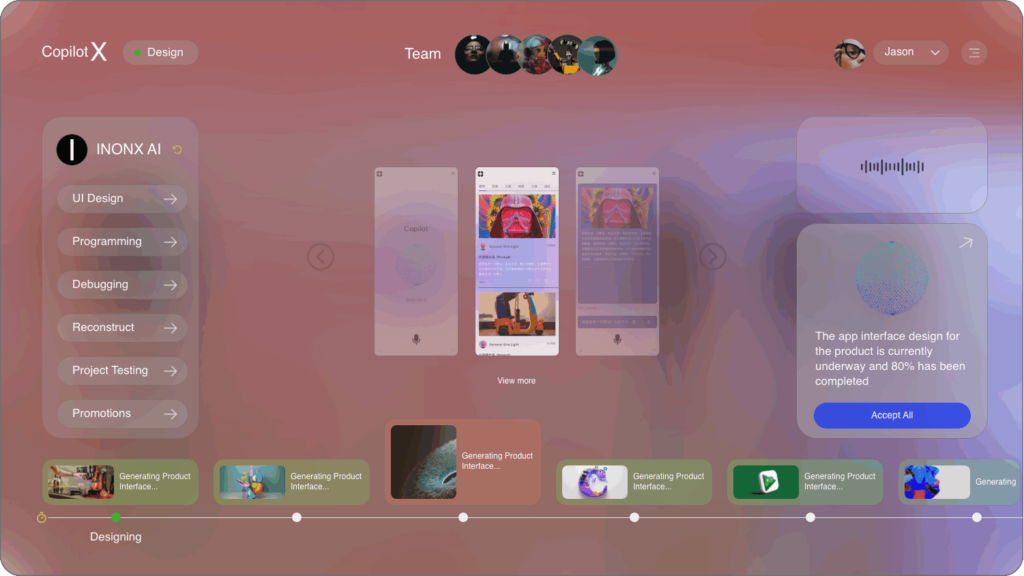In today’s fast-paced business environment, Artificial Intelligence (AI) has become synonymous with innovation and efficiency. Its application in various industries is reshaping processes, particularly in Human Resources (HR). The integration of AI in HR practices offers numerous benefits, including streamlined recruitment, enhanced employee engagement, and improved decision-making. This article delves into the current trends, challenges, and applications associated with AI in HR, focusing on notable platforms like Cohere and Claude by Anthropic.
**The Rise of AI in Human Resources**
The adoption of AI in HR is on a rapid upward trajectory. According to a report by Deloitte, over 40% of HR professionals are actively using AI technologies to improve their processes. AI-driven tools are not only automating routine tasks such as resume screening and scheduling interviews but are also providing strategic insights that can aid in holistic employee management.
A critical aspect of this transformation is the ability of AI to analyze large volumes of data quickly. Companies can leverage AI algorithms to sift through numerous applications, identifying the best candidates based on skill matching and predictive analytics. This efficiency not only saves time but also mitigates biases in selection procedures, fostering a more diverse workplace.
**Current Trends in AI for Recruitment**
The recruitment landscape is experiencing a significant shift, with organizations increasingly relying on AI technologies. One prominent trend is the use of natural language processing (NLP) tools, which enhance the recruitment process by analyzing job descriptions and candidate profiles. Software like Cohere is setting new benchmarks in this area.
Cohere offers an NLP-based solution that allows HR professionals to create more inclusive job descriptions. By analyzing language patterns, the tool suggests modifications to eliminate bias and attract a broader pool of applicants. This not only enhances the quality of candidates but also aligns with the modern workforce’s diverse expectations.
Additionally, AI technologies like Claude, developed by Anthropic, streamline candidate communication. Claude can engage in sophisticated dialogue with candidates, answering questions in real-time and providing insights about the company culture, job role, and expectations. By enhancing the candidate experience through conversational AI, organizations increase their chances of attracting top talent while showcasing their commitment to innovation.
**Enhancing Employee Engagement through AI**
Beyond recruitment, AI is transforming employee engagement and management processes. Companies are employing AI tools to monitor employee satisfaction and performance metrics. Using platforms like Cohere, organizations can implement sentiment analysis on employee feedback, identifying trends and areas for improvement.
The significance of employee satisfaction cannot be overstated, especially in today’s competitive job market. A recent survey by Gallup revealed that highly engaged teams show 21% greater profitability. By utilizing AI, HR professionals can create targeted engagement strategies that resonate with employees, addressing concerns before they escalate.
Additionally, AI-driven learning platforms can personalize employee training, ensuring that team members have access to resources tailored to their career development needs. Claude’s capabilities extend to providing personalized training suggestions based on an employee’s performance data, career aspirations, and feedback. This level of customization is crucial in retaining talent and fostering growth.
**Navigating Challenges of AI in HR**
Despite the promising benefits, the adoption of AI in HR is not without its challenges. Privacy concerns are at the forefront, as organizations gather and analyze vast amounts of employee data. It is imperative for companies to ensure that data handling practices comply with regulations like GDPR and CCPA to maintain trust and transparency.
Moreover, reliance on AI technology can inadvertently lead to algorithmic bias, where AI systems perpetuate existing prejudices present in training data. To combat this, organizations must regularly audit their AI tools and make concerted efforts to train algorithms on diverse data sets reflective of the global workforce.
**Technical Insights: The Role of AI Tools**
Key players in the AI space, such as Cohere and Claude, offer valuable insights into how technology can be harnessed effectively. Cohere’s technology focuses on understanding language nuances, making it vital for creating inclusive content and engaging potential candidates. Their advanced linguistic models allow businesses to identify the right tone and language for effective recruitment marketing.
On the other hand, Claude’s strengths lie in its conversational AI capabilities, enabling real-time interaction with candidates and employees. The technology utilizes human-like conversational attributes powered by advanced machine learning models. This fosters engagement while ensuring that information dissemination is seamless and efficient.
**Industry Use Case: Transforming Recruitment at XYZ Corp**
To illustrate the practical applications of AI in HR, let’s examine a hypothetical case study involving XYZ Corp, a mid-sized tech company. Facing challenges in attracting and retaining talent, XYZ Corp integrated AI through Cohere and Claude into their HR processes.
Upon adopting Cohere, XYZ Corp restructured their job descriptions to utilize inclusive language, significantly enhancing the diversity of their applicant pool. In six months, they reported a 40% increase in applications from underrepresented groups.
Moreover, the integration of Claude allowed HR representatives to focus on creating a positive candidate experience. By deploying Claude for initial candidate interactions, XYZ Corp improved engagement rates during the recruitment process. Candidates reported feeling more informed and connected throughout their application journey.
Beyond recruitment, XYZ Corp deployed AI-driven feedback systems that analyzed employee sentiment through real-time surveys and feedback tools. This initiative resulted in actionable insights that enhanced employee satisfaction scores by 30%, subsequently reducing turnover rates.
**Future Outlook: The Next Frontier of AI in HR**
As AI technology continues to evolve, its potential in HR appears limitless. Future developments may include deeper integrations of AI within HRIS (Human Resource Information Systems) and an increase in hybrid work innovations. Companies are expected to utilize AI to predict workforce trends, staff requirements, and even potential layoffs to improve organizational resilience.
Moreover, AI’s applicability in mental health and well-being support is quickly emerging. Companies may leverage AI tools to provide tailored wellness resources and mental health support for employees based on predictive analytics.
**Conclusion**
In conclusion, the integration of AI in Human Resources, as evidenced by platforms like Cohere and Claude, is revolutionizing the way organizations approach recruitment and employee engagement. As AI technologies continue to mature, adapting to these innovations will be vital for companies aiming to maintain a competitive edge in attracting and retaining talent. However, it is essential to navigate the associated challenges thoughtfully to foster an equitable, diverse, and engaged workforce for the future.

























